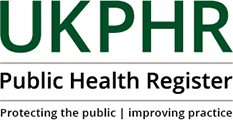Member of a professional body. Registrant of a regulatory body. In public health, they are two different things
By Pav Johal, Registration Services and Office Manager, UKPHR
FPH exists to provide its members with professional representation….as a regulator, UKPHR’s first obligation is public protection
Membership and registration are terms that are closely connected and often treated as synonyms. It leads people to overlook the distinction between them.
In times gone by, it might have been common for the same body to provide a professional grouping with their membership body and their regulatory body. The Law Society, for example, once fulfilled both roles for solicitors.
In modern times, the dual role model has fallen into disfavour, largely because of the perceived conflict of interest for the body trying to carry out both functions. So eventually, The Law Society gave up the regulatory role to the Solicitors Regulation Authority.
For the UK public health profession, the UK Faculty of Public Health (FPH) is the main professional body. Nearly all public health specialists and some public health practitioners hold FPH membership.
UK Public Health Register (UKPHR) is the most obvious professional regulatory body for public health specialists and public health practitioners to would register with.
Professional bodies and regulatory bodies exist for different purposes. They have different relationships with their members/registrants.
In the UK, FPH and UKPHR work closely together wherever their interests align. For example, both organisations want to ensure that there is consistency in the standards and practice of all professionals involved in delivering public health services. But the two organisations are distinct and have different mandates.
For instance, as the professional body, FPH exists to provide its members with professional representation and support for their professional development. As a regulator, UKPHR’s first obligation is public protection.
Modern thinking about regulation is that regulators should be proactive in maintaining and enhancing the competence of registrants and the quality of the services they provide. Instead of waiting to receive complaints of misconduct and incompetence, and taking action through fitness to practise proceedings, regulators should improve their surveillance and increase their engagement with registrants and others.
At UKPHR, we very much believe that a proactive approach is right. We set requirements for CPD and revalidation precisely so that registrants are guided to maintain and enhance their professional practise.
Feedback we gather, for example by auditing CPD compliance and reports of professional appraisal (just two examples of what we do), enables us to take a view about registrants’ commitment and performance.
This in turn feeds back to the services that FPH offers its members. By co-operating with FPH, we can agree areas of professional practice for attention and FPH can develop relevant programmes.
It is in examining the relationship between professionals and their professional body on the one hand and regulatory body on the other that the distinctions become more apparent.
Membership of a professional body involves paying a membership fee in order to gain access to the benefits and services provided to members. For example, FPH offers access to e-bulletins, post nominals, peer networks and discounts on external services. I see often that the FPH service for recording and verifying CPD activity is highly prized by its members.
Registrants pay UKPHR (and other regulators) registration fees to be regulated in their professional practice. They accept that they must pay the regulator in order to satisfy the public that they practise their profession in accordance with the regulator’s conditions, codes and rules.
Registration with a regulator should not be taken light-heartedly. Nor should it be mistaken for membership of a professional body. A false declaration to a regulator may have serious consequences, including loss of the right to practise.
At UKPHR, we encourage registrants, where possible, to take membership of FPH. It is a home of their professional voice. I personally encourage registrants to make use of the services FPH offers, especially the online CPD diary.
However, do please be conscious of the distinct roles that the two organisations will have throughout your professional public health career.



Comments are closed.